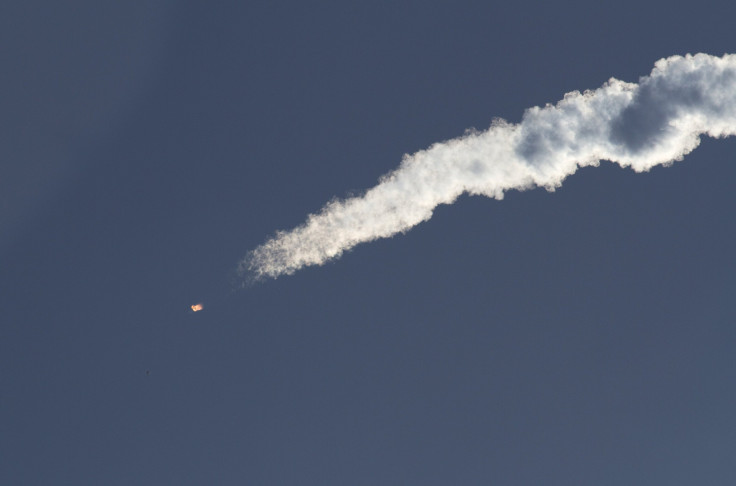US Air Force Opens Bidding For New Rockets, Eyes Quick Turnaround

The U.S. Air Force on Tuesday formally kicked off a competition for development of new prototype rocket propulsion systems, and address the "urgent need" to end U.S. reliance on Russian engines to launch military and intelligence satellites.
Lieutenant General Samuel Greaves, who heads the Air Force's Space and Missiles Systems Center, told reporters on a teleconference that initial proposals were due by June 23, and the government hoped to divide $160 million in contracts among up to four bidders on a rolling basis beginning in September.
The program, a so-called "public-private partnership," will require bidders to use their own funds to cover a third of the cost of the prototypes, Greaves said.
Those investments, slated to last 12 to 18 months, will pave the way for later service contracts for the launch of key military and spy satellites, the Air Force said.
The Air Force is scrambling to meet a congressional deadline for ending use of Russian-built RD-180 engines to U.S. launch military or intelligence satellites by 2019, a ban implemented after Russia last year annexed the Crimea region of Ukraine.
Russia's actions sparked concerns about relying on the Russian engines to power the Atlas 5 rocket built by the current monopoly launch provider, United Launch Alliance, a joint venture of Lockheed Martin Corp and Boeing Co.
ULA is expected to compete against privately held Space Exploration Technologies, or SpaceX, which was certified last week to compete for military and spy satellite launches.
Other companies, including Aerojet Rocketdyne Holdings Inc, said they were also studying their options.
"We're moving fast," Greaves said. "The plan is to transition from the RD-180 by investing with industry partners to develop commercially viable launch systems that also assure access to space for our (national security space) systems."
The Air Force also launched a separate process to fund development of a U.S.-built oxygen-rich hydrocarbon combustion engine, but remains committed to a longer-term strategy of buying launch services rather than actual rockets or engines.
No comment was immediately available from ULA or SpaceX.
Blue Origin, a company owned by entrepreneur Jeff Bezos that is developing a new engine for ULA, also declined to comment.
Greaves said the Air Force had examined the possibility of obtaining data rights to the Atlas 5 rocket after a query by a group of companies led by Aerojet, which are interested in building a new engine for the launch vehicle.
The matter is being reviewed by Air Force acquisition chief William LaPlante, who last month welcomed the initiative, and the Pentagon's top arms buyer, Frank Kendall.
He said "intense discussions" were also underway about whether to issue a waiver to a fiscal 2015 law to allow ULA to compete for more than five rocket launches between 2019 and 2022, and a decision was likely soon.
ULA needs the issue resolved to get approval for continued investment in development of a new U.S.-powered rocket.
© Copyright IBTimes 2024. All rights reserved.





















